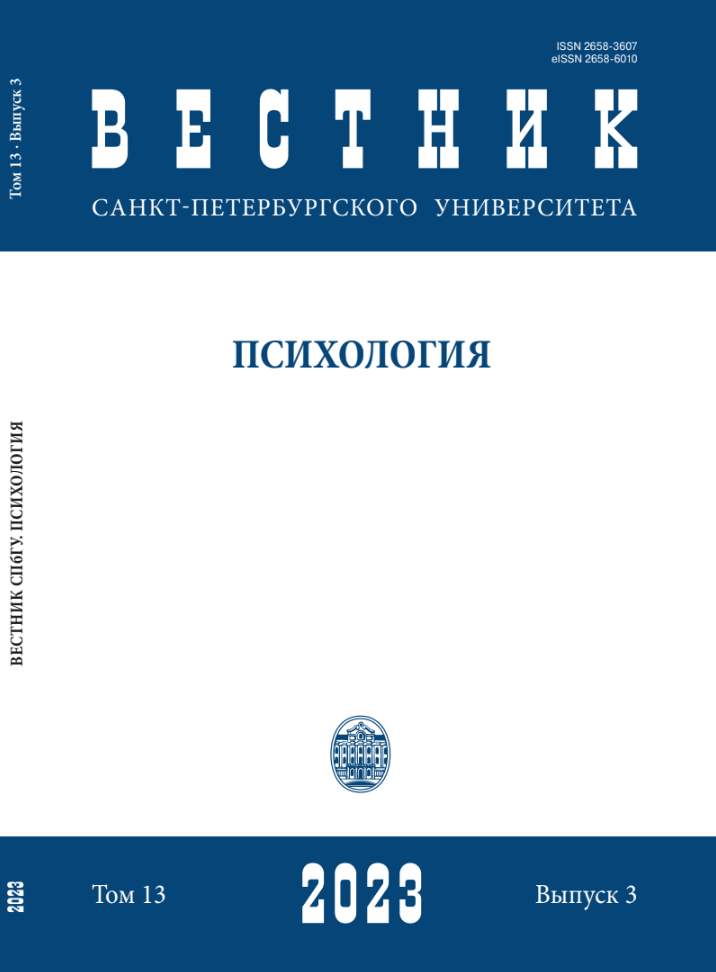The practice of intuitive drawing in overcoming the consequences of traumatic stress in combat participants
DOI:
https://doi.org/10.21638/spbu16.2023.309Abstract
The conditions of modern professional activity of special units of internal affairs bodies are characterized by a significant intensity of mental stress, as well as a wide variety and heterogeneity of circumstances that can lead a person into a state of affect, complete disorientation in the environment. Employees need to assess the situation impartially and make adequate decisions taking into account its unpredictability. In such conditions, the ability to self-control over your feelings and behavior is very important. A special role in this process is played by the mental state, which is an important part of the regulation of behavior and is significant in any kind of activity. Extreme conditions of service create the need for a psychological study of the emotional states in which the fighters are after participating in hostilities in order to provide them with timely and necessary psychological assistance. The purpose of this work is to find the most effective methods of restoring vital resources, especially in conditions of transformation of society and the growth of social tension. The author adheres to the hypothesis that the art-therapeutic practice of intuitive drawing is effective in the psychological correction of negative states. The proposed experience of working with negative emotions of police officers is effective as a way of expressing personal problems, which makes it possible for a psychologist not only to determine the direction for psychological work, but also to use this practice in correcting the negative mental state of an employee. Art therapy, as a creative process, allows you to feel and understand yourself, express thoughts and feelings freely, get rid of negative experiences. By drawing, the employee gives an outlet to his feelings, desires, dreams, rebuilds his attitude to various situations and traumatic images, and also plunges into positive feelings for a while, distracting himself from negative thoughts and states.
Keywords:
professional activity, mental states, regulation, special units, intuitive drawing
Downloads
References
References
Downloads
Published
How to Cite
Issue
Section
License
Articles of "Vestnik of Saint Petersburg University. Psychology" are open access distributed under the terms of the License Agreement with Saint Petersburg State University, which permits to the authors unrestricted distribution and self-archiving free of charge.




